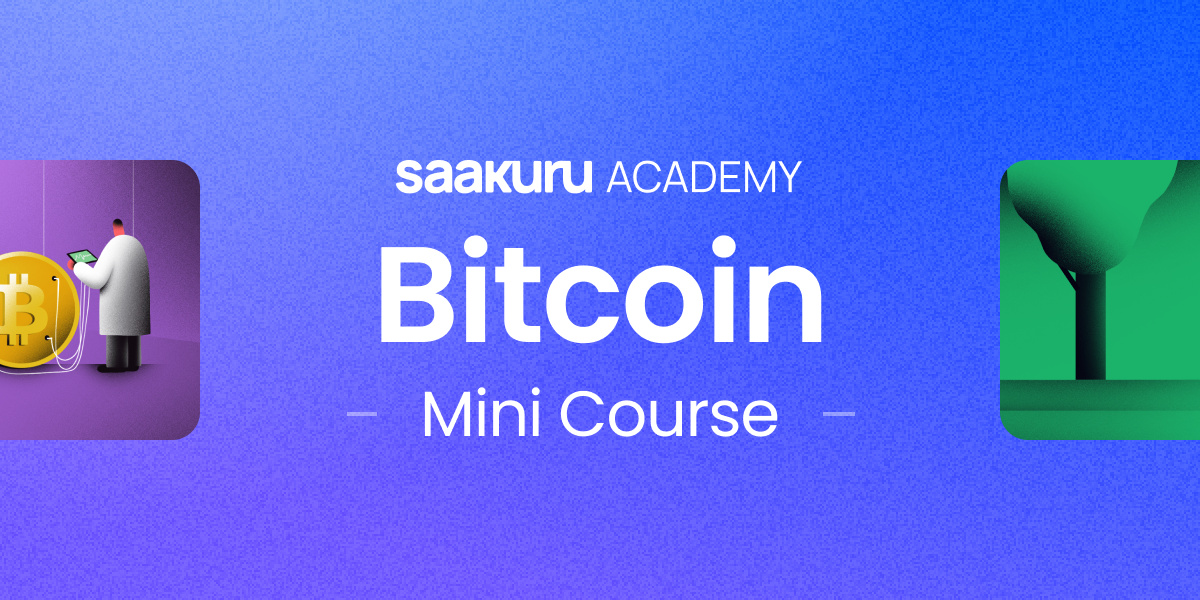- Products
Saakuru Blockchain Blockchain with no gas fee
Learn moreSaakuru App All-In-One crypto wallet
Learn moreSaakuru SDK Embed Web3 wallet easily
More InfodApp Store Discover Thousands of dApps
Learn moreSaakuru Games Guild Management Tool
Apply for scholarshipTomoOne Grow virtual pet
Learn moreSaakuru Cashback Shop online with discount
Learn more - Token
- Academy
- Saakuru Live
- About us
- Community

What is Arbitrum (ARB)?
Arbitrum is a Layer 2 Ethereum scaling solution, boosting smart contract transactions and reducing costs for DeFi projects like Sushiswap and Aave. The native token, $ARB, serves various roles, from value transfer to governance participation. With an initial supply of 10 billion tokens and a 2% annual inflation rate, $ARB holders influence governance decisions through proposals on platforms like Snapshot.org. They can also elect members to the Security Council overseeing the treasury wallet.
In this AAG academy article, we will explore Arbitrum and its native token, ARB, in-depth. We’ll delve into how Arbitrum operates, its advantages, drawbacks, and address some frequently asked questions.
What is Arbitrum
Arbitrum, a Layer 2 scaling solution for Ethereum, is revolutionizing the world of smart contracts and decentralized finance. It accelerates smart contract transactions while reducing costs on the Ethereum Layer 1. In essence, Layer 2 solutions like Arbitrum enhance Ethereum’s scalability by offloading complex tasks to a secondary blockchain. This symbiotic relationship ensures the security of Layer 1 while streamlining transaction processing and data storage on the main network.
Arbitrum has a tangible impact on Ethereum’s ecosystem, reducing congestion and transaction costs. DeFi projects like Sushiswap and Aave utilize Arbitrum to offer cost-efficient swaps. By leveraging optimistic rollups, Arbitrum executes off-chain transactions in large batches before sending them to the Ethereum mainnet, reducing computational and storage burdens. Developed by Offchain Labs, Arbitrum represents a significant step towards enhancing Ethereum’s efficiency and scalability, spearheaded by blockchain experts Ed Felten, Steven Goldfeder, and Harry Kalodner.
What is ARB
$ARB, the native ERC-20 compatible token on the Arbitrum blockchain, has a multifaceted role. It can be used for value transfer, investment, and active participation in governance through the Arbitrum DAO. With an initial supply of 10 billion tokens and a 2% annual inflation rate, 12.75% of the supply was distributed in March 2023, resulting in a circulating supply of about 1.275 billion $ARB tokens.
Arbitrum’s governance decisions are executed through proposals on platforms like Snapshot.org, enabling users to cast their votes and influence fund allocation, ecosystem investments, and technical changes. Additionally, $ARB holders can vote to elect members to the Security Council, a team overseeing the treasury wallet.
How does Arbitrum (ARB) work
Arbitrum employs optimistic rollups, a roll-up technology, to significantly enhance Ethereum smart contract scalability. It fosters seamless communication between Ethereum’s main chain and the Arbitrum second layer chain, where the bulk of transaction processing occurs. This approach not only bolsters speed and efficiency but also places trust in any validator’s ability to confirm block validity, promoting network resilience against malicious activities.
Arbitrum’s network participation is flexible, with validator nodes monitoring chain states, and full nodes aggregating layer 1 transactions. Aggregators, who submit transactions to the layer 1 chain, receive ETH rewards, while user transaction fees benefit various network participants. Arbitrum introduces a challenge mechanism for rollup blocks, holding validators accountable and ensuring fair play by confiscating stakes when challenges are justified. Additionally, the Arbitrum Virtual Machine (AVM) serves as the execution environment for Arbitrum smart contracts, seamlessly converting Ethereum-compatible smart contracts for AVM operation.
Pros and Cons of Arbitrum
Investing, trading or engaging with the Arbitrum blockchain and ARB proposes a few pros and cons:
Pros:
VM Compatibility: Arbitrum seamlessly integrates with the Ethereum Virtual Machine (EVM), supporting languages like Solidity and Vyper, simplifying development.
Developer-Friendly: The Arbitrum team offers robust developer documentation and compatibility with existing Ethereum tooling, making it easy for developers to work with.
Low Fees: As a layer 2 solution, Arbitrum significantly reduces transaction fees while providing incentives for validators, enhancing cost-effectiveness.
Fair Launch: Arbitrum’s fair launch approach includes thorough testing without a native utility token or token sale, ensuring accessibility for developers.
Vibrant Ecosystem: Arbitrum collaborates with prominent Ethereum DApps and infrastructure projects, fostering a thriving ecosystem, including Uniswap, DODO, Sushi, and others.
Cons:
Role of Trusted Validators: Arbitrum relies on trusted validators, introducing centralization and necessitating trust in their actions.
Influence of Validators: Validators in Arbitrum wield significant influence, raising governance concerns and affecting network performance.
Time Delay and Latency: Arbitrum’s dispute resolution introduces delays, impacting time-sensitive applications and potential latency issues may affect real-time interactions.
Limited Smart Contract Functionality: Smart contracts may need optimization for Arbitrum’s rollup design, and restrictions on interactions could challenge complex projects.
References
Frequently Asked Questions
Arbitrum (ARB) tokens are available from a wide range of centralized and decentralized exchanges, including Binance, Coinbase, and Uniswap.
Certainly! Similar to numerous other cryptocurrencies and blockchain networks, MetaOne provides support for Arbitrum (ARB), and you can conveniently access it within the MetaOne wallet.
CoinMarketCap is a highly reputable platform, widely regarded as an excellent resource for tracking the price of Arbitrum (ARB) and monitoring the latest market trends for thousands of other cryptocurrencies.
Absolutely! You can monitor ARB blockchain transactions and gain access to additional information using arbiscan.io
Was this article helpful?
YesNo
Disclaimer
This article is intended to provide generalized information designed to educate a broad segment of the public; it does not give personalized investment, legal, or other business and professional advice. Before taking any action, you should always consult with your own financial, legal, tax, investment, or other professional for advice on matters that affect you and/or your business.
Get news first
Be the first to get our newsletter full of company, product updates as well as market news.
🍪
We use cookies to make your experience better. Learn more: Privacy Policy
Accept


















